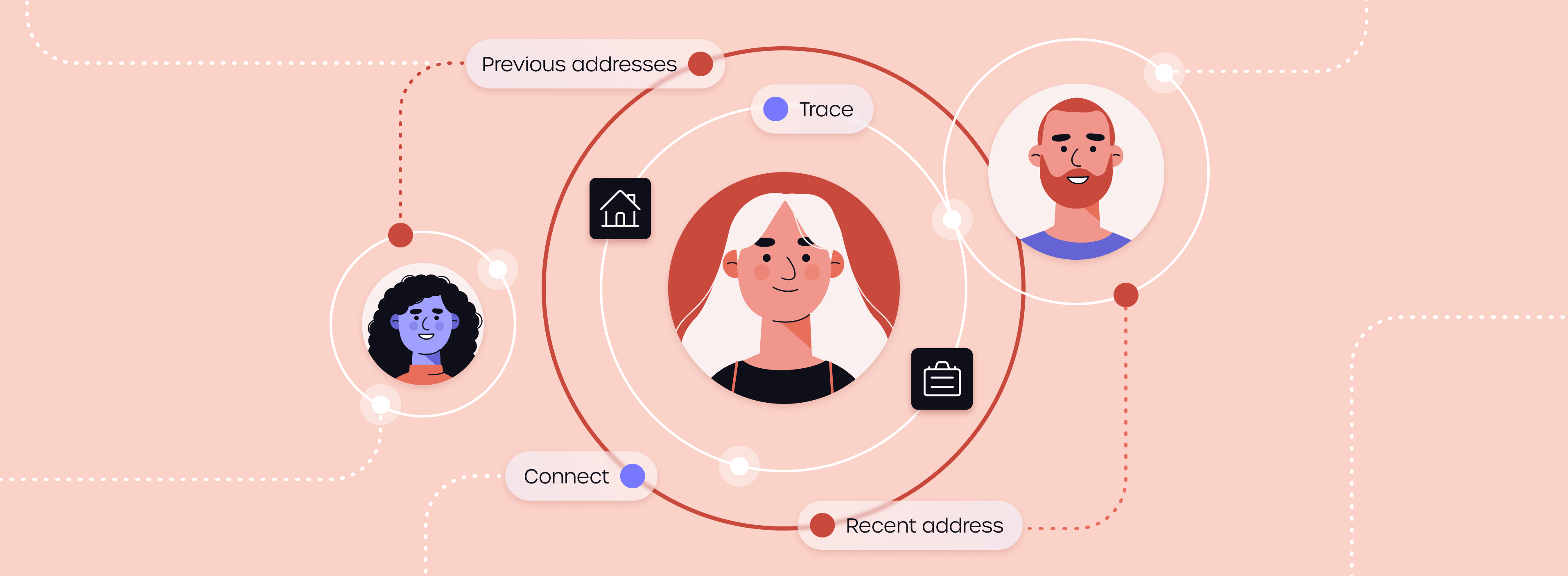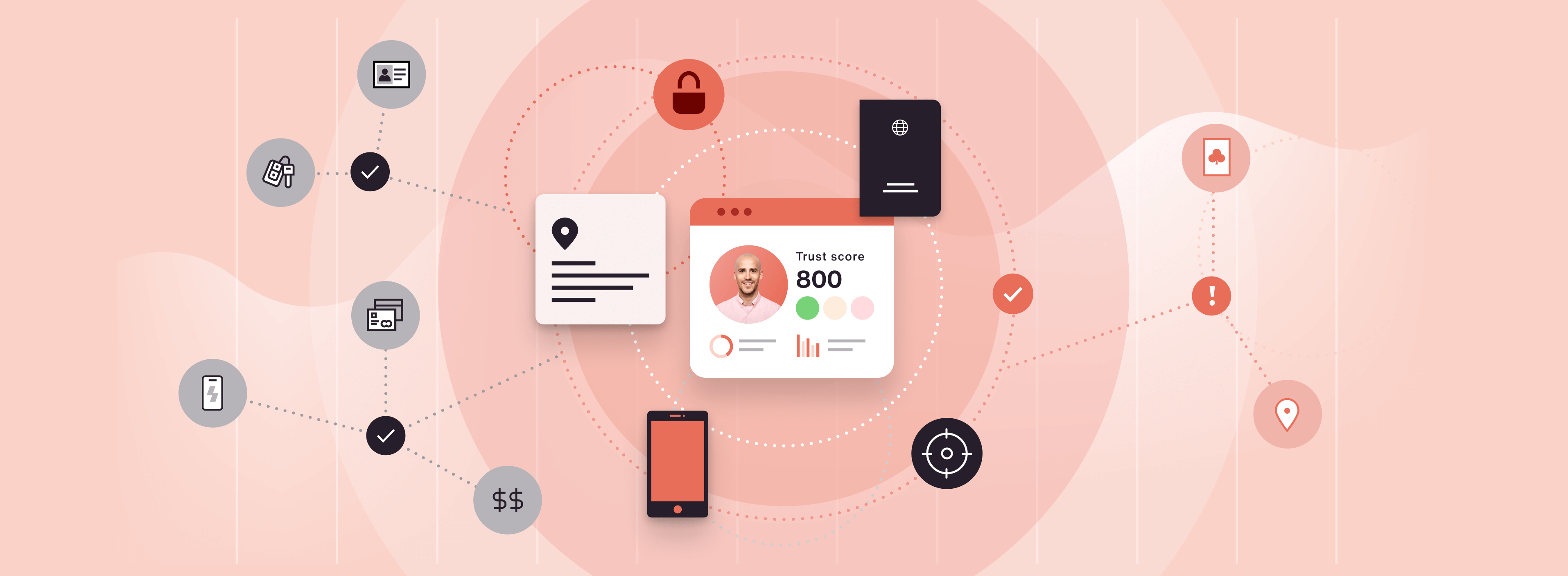
Improve debt recovery with debtor tracing technology
With financial pressures mounting, some consumers will take on debt that they may struggle to repay, and the most desperate debtors may choose to disappear.
Tracing customers you have lost track of as quickly as possible is a priority, not only to increase the chances of successful debt recovery, but to provide an opportunity for a customer to restructure their debt or receive financial support and advice. By cross-referencing data from different sources, it’s possible to build up a complete picture of financial health and reconnect with customers quickly and easily.
What is debtor tracing?
Debtor tracing is the process of locating an individual who owes money to another person or organisation. If the individual has changed their last known address, their contact information or is otherwise difficult to find, often – but not always – in a deliberate attempt to disappear, evade detection or responsibility, then debtor tracing software can help to track them down.
Debtor tracing uses multiple services and solutions to find individuals who owe money. It can help to identify if the individual no longer lives at the property currently listed on your records and if they don’t it can find new addresses that they may have moved to by accessing credit data.
You’re then able to validate that the mobile, landline and email information you have for the individual is live and contactable, plus you can check death records to make sure you aren’t spending time chasing an individual who’s deceased.
Debtor tracing requires a combination of investigative skills, access to information, and sometimes legal authority to locate individuals.
Valuable insights from millions of records with GBG Investigate
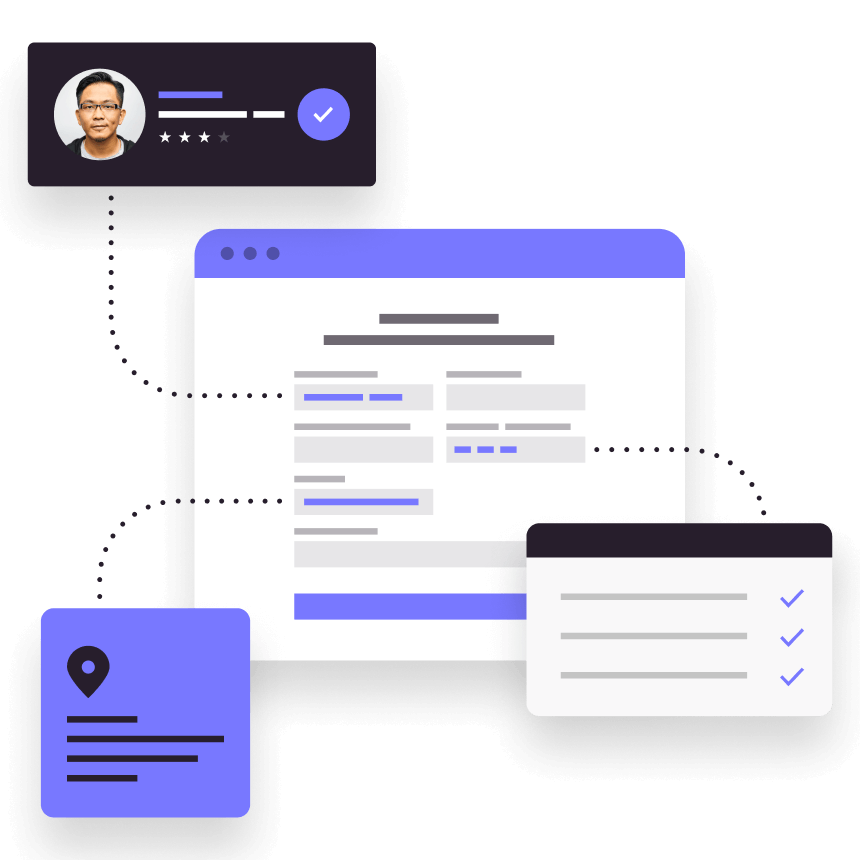
Why debtor tracing is important
Unless you trace a debtor, it’s very hard to get back the money they owe you, so debtor tracing is a crucial process in debt recovery.
Without the individual’s correct address or contact information, it’s challenging to pursue debt collection actions. By tracing someone who has got into debt, you can initiate debt recovery proceedings through litigation or enforcement. Having accurate contact information helps you to take legal action and recover the outstanding debt.
Millions of pounds in debt are written off every year because the debtor is untraceable. Using debtor tracing software can improve your chances of tracing an individual and therefore recovering the debt.
“Having access to billions of records at your fingertips means that you can build a picture of your debtor.”
Using technology to trace debtors
Debtor tracing software brings together data from disparate sources in one place and links individuals, places and businesses to give you a holistic view of the person who owes money.
Having access to billions of records at your fingertips means that you can build up a picture of your debtor by searching for their past and current addresses, contact details, whether they have a County Court Judgement (CCJ), whether they’ve ever been declared insolvent and whether they’ve taken out credit for a mobile phone, for example.
This depth and breadth of data makes it easy for you to identify the most promising leads and separate them from dead ends - massively reducing the time it takes for you to carry out investigations and ensuring you don’t miss crucial information.
You can also upload your own data and compare it to existing data sets to automate the investigation process and access the data whenever you need it.
Basic techniques for debtor tracing
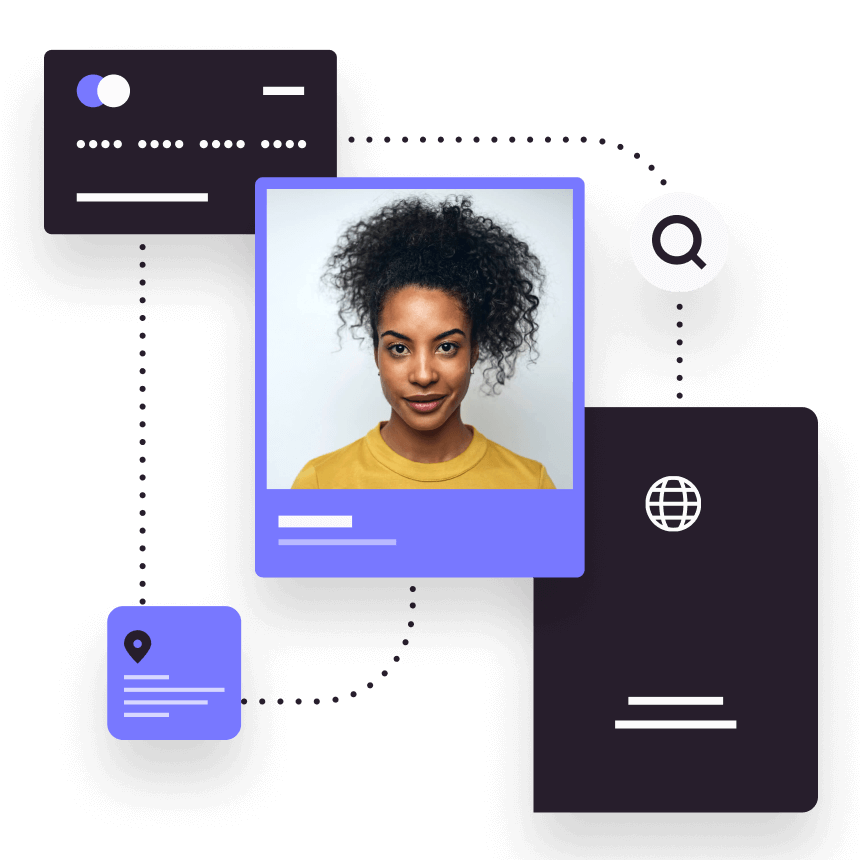
Stage 1: Cleanse
Check that the individual isn’t deceased and whether you have the right address, mobile or landline number for that person. It’s also useful to check whether they’ve been declared insolvent or have a CCJ, which can give you a view of their financial situation.
Stage 2: Search
If there are gaps in the information you have or it’s just not up to date, you can cross-reference the data you do have with records held in debtor tracing technology, like GBG Investigate. This can throw up missing information or provide relevant new information.
Stage 3: Trace
By cross-referencing various data points, GBG Investigate can help you confirm a debtor’s new address. This is particularly useful if you plan to go to court to recoup the debt.
Stage 4: Validate
Once you have an address confirmed, GBG Investigate can help you validate any phone numbers and email addresses associated with that new address, as well as re-check whether the person is insolvent or has a CCJ.
Start debtor tracing with GBG Investigate
GBG Investigate gives you access to billions of data records. As the leading debtor tracing and identity investigation solution in the UK, GBG Investigate‘s powerful matching algorithms bring your investigation to life by analysing these data records in seconds and presenting them in an intuitive visual graph, linking data and advancing investigation of any individual.
Cost-effective tracing
GBG Investigate’s costing structure is transparent and competitive. Access to all consented data is part of your licence fee, allowing you to build intricate investigations, linking co-habitants, addresses and digital data. Then when your investigation needs that extra layer of certainty, we can also provide access to multiple proprietary data sources.
Estatesearch
Estatesearch helps customers recover valuable lost accounts and investments. To simplify and speed up complex asset recovery investigations, Estatesearch need access to rich data sources to discover hidden links between individuals, organisations and property.
Estatesearch tackle tough tracing challenges with GBG Investigate
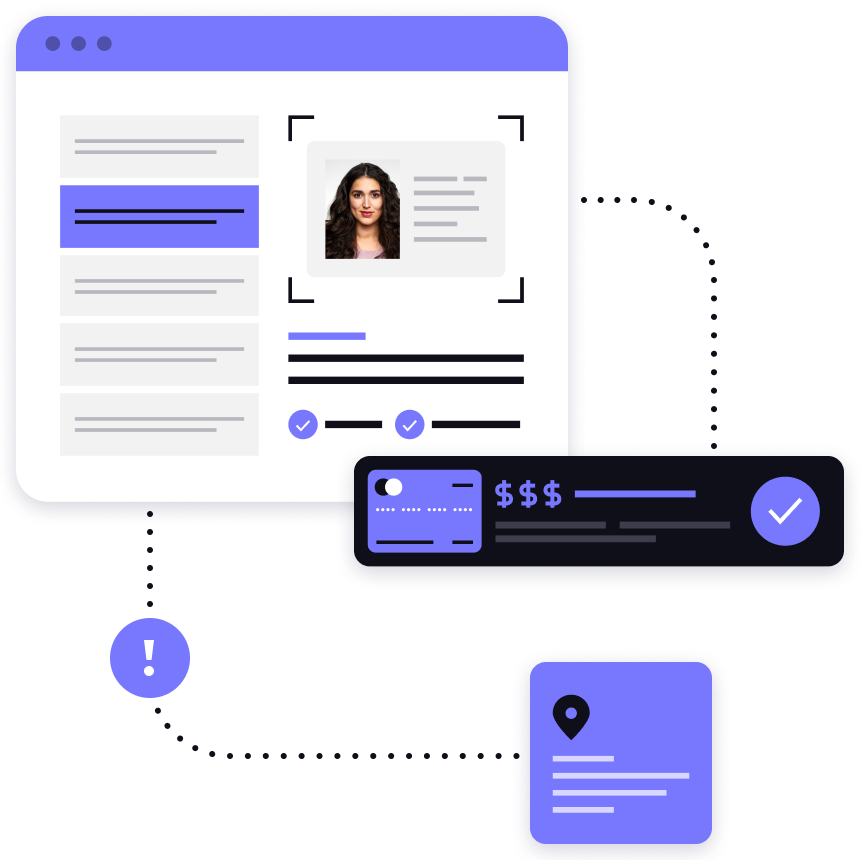
Access to a larger database
GBG Investigate has one of the largest pools of data within the UK marketplace. As a data aggregator we blend the data from different suppliers ensuring our data covers all demographics. This helps you fill in the gaps in your data and narrow down your search quickly.
Maintaining compliance
As a data controller with Information Commissioner’s Office (ICO) accreditation, we have strict controls over who we work with and how our data is sold and managed. We have a dedicated InfoSec Team, Compliance Team and Data Protection Team, which ensures we work together with customers safely and securely.
Oxford City Council
The Counter Fraud Investigation team at Oxford City Council are tasked with ensuring that essential council services, such as the Right to Buy social housing, are targeted at citizens with the greatest need and that public funds are protected from fraudulent applications.
GBG Investigate helps Oxford City Council prevent millions in fraud
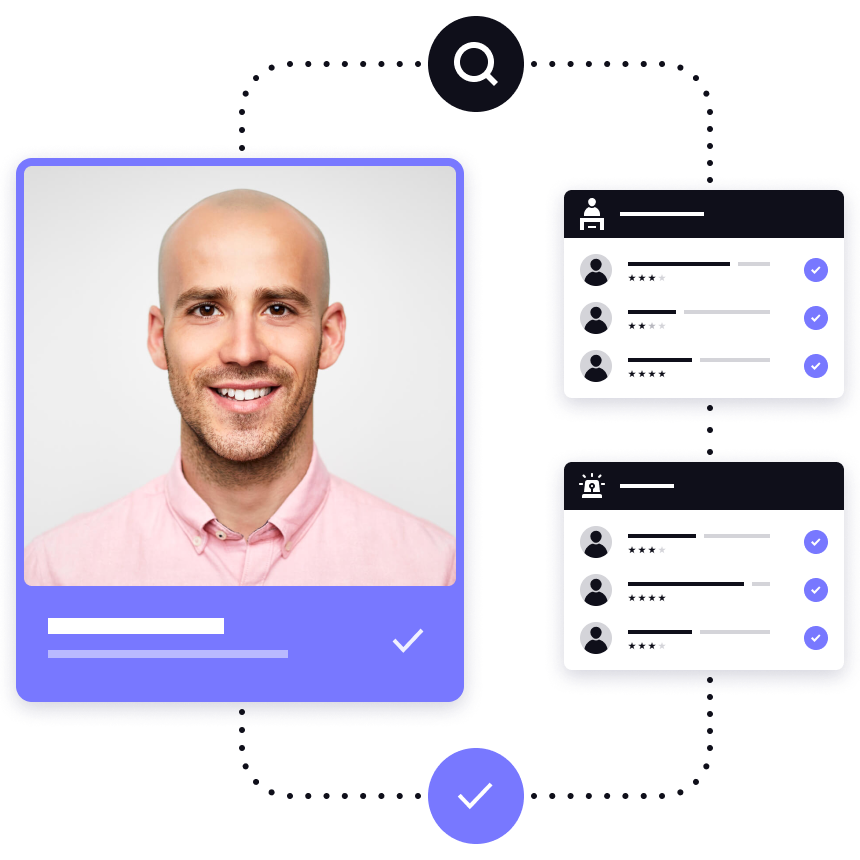
Overcoming challenges in debtor tracing
Outdated information
The number one challenge in debtor tracing is making sure you use up-to-date, accurate information to find the debtor. Some individuals choose to disappear so identifying where they have gone is crucial to be able to recover the debt. Our validation services can tell you if the number, email address or physical address you have on file for the debtor is up to date and accurate.
“As a data aggregator we blend the data from different suppliers ensuring our data covers all demographics. This helps you fill in the gaps in your data and narrow down your search quickly.”
Missing data
A common roadblock when beginning an investigation to trace someone who owes you money is not having their full personal and contact details in the first place. To overcome this challenge, we’ve designed a database that enables matching using fewer data attributes. This helps identify ‘maybe’ individuals – individuals who are worth investigating to see if they’re the person you're looking for.
Complex cases
GBG Investigate gives you access to a network of millions of individuals linked by our unrivalled matching technology. This means you can search a person of interest via multiple avenues. For example: last known address, mobile number, email address or a landline. These data attributes allow you to build up a picture of the individual in question to improve your confidence in tracing them.
Frequently asked questions
What is debtor tracing?
Debtor tracing is the process of locating an individual who owes money to another person or organisation. It requires a combination of investigative skills, access to information, and sometimes legal authority to locate individuals.
Is debtor tracing legal?
Yes, when you use a legitimate debtor tracing service. Debtor tracing services must adhere to strict rules and privacy regulations. They need to be registered with the Information Commissioner’s Office (ICO) in the UK and have a legitimate interest via GDPR to contact the debtor.
Why should I use debtor tracing software?
Debtor tracing software, like GBG Investigate, gives you easy access to online databases that aggregate public records. This makes it much simpler to trace an individual’s identifying information rather than searching each public record database individually. This in turn can reduce the time it takes to trace an individual and start the process of recovering your debt.
How can I trace a debtor?
Debtor tracing software is a really useful tool to help trace a debtor. GBG Investigate gives you access to one of the largest collections of independent data sets covering the UK population. This wealth of UK data can be combined with your proprietary data and interrogated with GBG Investigate’s intelligent search capabilities, making debtor tracing quicker and easier.
Sign up for more expert insight
Hear from us when we launch new research, guides and reports.

